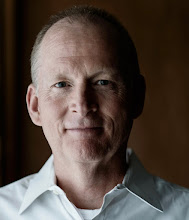

 Are you seeing people with Jesus' eyes?
Are you seeing people with Jesus' eyes?

 Are you seeing people with Jesus' eyes?
Are you seeing people with Jesus' eyes? My SoHills' ministry team mates and I have been talking a lot lately about trust and trustworthiness. We understand that trust cannot be sustained in a culture where individuals are not worthy of trust. Therefore, we must choose to be trustworthy.
My SoHills' ministry team mates and I have been talking a lot lately about trust and trustworthiness. We understand that trust cannot be sustained in a culture where individuals are not worthy of trust. Therefore, we must choose to be trustworthy. Most of us don't waste enough time. That's the case John Ortberg makes in this thought-provoking post:
Most of us don't waste enough time. That's the case John Ortberg makes in this thought-provoking post: If Jesus were to throw a party in your city... who would he invite?
If Jesus were to throw a party in your city... who would he invite? I'm a big fan of a team oriented approach to ministry. Here are five great ways to energize any team you work with.
I'm a big fan of a team oriented approach to ministry. Here are five great ways to energize any team you work with. Leadership is not about making decisions on your own. It's about owning decisions once they are made.
Leadership is not about making decisions on your own. It's about owning decisions once they are made. Recently a group of SoHills' elders and ministers got together to consider how we might work together to create a stronger culture of trust among us. We viewed a DVD that featured a challenging presentation by Andy Stanley entitled "Trust vs. Suspicion." Here are some of my take-aways from Andy's message:
Recently a group of SoHills' elders and ministers got together to consider how we might work together to create a stronger culture of trust among us. We viewed a DVD that featured a challenging presentation by Andy Stanley entitled "Trust vs. Suspicion." Here are some of my take-aways from Andy's message: I love this quote: "Why am I so desperate for everyone to like me, when the person I want to be like, was not liked by so many people?" - Jon Acuff
I love this quote: "Why am I so desperate for everyone to like me, when the person I want to be like, was not liked by so many people?" - Jon Acuff "The next generation product almost never comes from the previous generation." (Al Reis, Focus)
"The next generation product almost never comes from the previous generation." (Al Reis, Focus) The following is a recent article written by Dave Ferguson, the lead pastor at Community Christian Church in Naperville, Illinois. I found Dave's insights into the lessons he'd learned while starting new things to be most insightful.
The following is a recent article written by Dave Ferguson, the lead pastor at Community Christian Church in Naperville, Illinois. I found Dave's insights into the lessons he'd learned while starting new things to be most insightful. In the Summer/2009 issue of Leadership Journal, John Ortberg observes in an article titled "The Gap: The Fractured World of Multi-Generational Church Leadership": "When it comes to generations working together, the question of control is never more than about a micron below the surface."
In the Summer/2009 issue of Leadership Journal, John Ortberg observes in an article titled "The Gap: The Fractured World of Multi-Generational Church Leadership": "When it comes to generations working together, the question of control is never more than about a micron below the surface."
